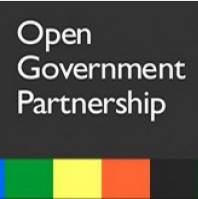


Authors: Natalia Varazi, Levan Avalishvili and Giorgi Kldiashvili

On 11th of November, 2016 the Government of Georgia adopted Open Government Partnership’s Action Plan of 2016-2017, which was elaborated by the Open Government Georgia’s Secretariat (the Analytical Department of the Ministry of Justice of Georgia) in close collaboration with civil society, business sector and international organizations within the framework of the Open Government Georgia’s Forum.
The Action plan consists of 24 commitments of 24 responsible agencies. Furthermore, in order to develop the Action Plan, 19 meetings were conducted across the country. These meetings, along with other public consultations, were technically supported by USAID Good Governance Initiative in Georgia, as for the Institute for Development of Freedom of Information (IDFI), within the competence of the Chairman of the Open Government Georgia’s Secretariat, the latter was actively involved in planning and organization of consultations related to development of the Action Plan. In order to elaborate the Action Plan, public consultations were held in Borjomi, Batumi, Samtredia and other cities of Georgia. Furthermore, several commitments included in the Action Plan were selected as a result of public consultations. Among them are the commitments of local self-governments regarding the participatory process for budget development, transparency of local self-governing processes and adopting the Public Service Hall to the needs of disabled people.
In order to develop the Action Plan of 2016-2017, the Open Government Georgia’s Secretariat was presented with additional recommendations from various non-governmental organizations, including Institute for Development of Freedom of Information (IDFI).
While Speaking of the commitments provided under the third Action Plan, it is noteworthy that the number of agencies responsible for implementation of commitments under the aforementioned Action Plan has increased from 17 to 24. Namely, in accordance with IDFI recommendations, Ministry of Labour, Health and Social Affairs of Georgia, Ministry of Energy of Georgia, Ministry of Economy and Sustainable Development of Georgia, Ministry of Regional Development and Infrastructure of Georgia, Ministry of Corrections and Probation of Georgia, Prosecutor’s Office of Georgia and LEPL “Competition Agency” were added to the Open Government Georgia’s Secretariat.
As for the structure of the Open Government Partnership’s Action Plan of 2016-2017, it consists of five grand challenges, namely:
Moreover, each of the Challenges combines various commitments:
It is noteworthy that in the Action Plan 2016-2017 the challenges of the local self-governments are presented in the separate chapter. In accordance with the Action Plan, the local self-governments will respond to two grand challenges - Increasing Public Integrity (Challenge II) and More Effectively Managing Public Resources.
/public/upload/OGP/ogp_action_plan_review_eng.pdf